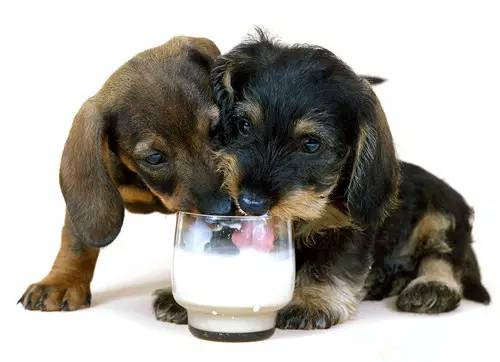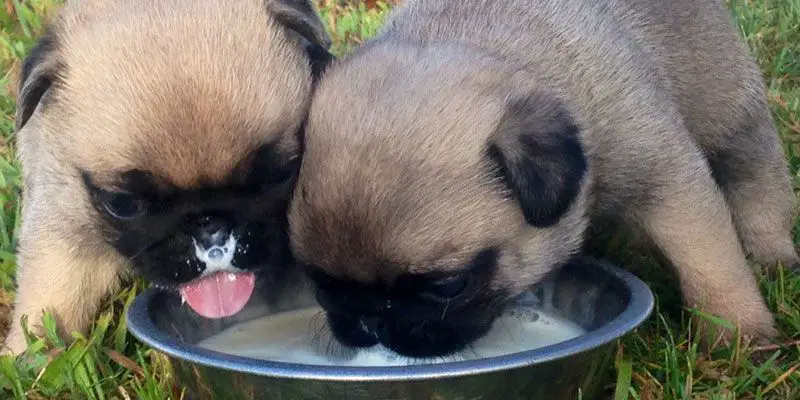Surely, when you imagine an animal drinking milk, the first ones that come to mind are cats, happily lapping it from their bowl. After all, they love this product so much that they can drink it almost endlessly. But, if you remember the rest of the four-legged pets, is it safe to say that dogs drink milk? Most dogs can drink cow’s or goat’s milk, but there are also dogs with lactose intolerance. At the same time, most dogs can still easily drink milk.
When can dogs drink milk?
No one doubts that the puppies definitely drink their mother’s milk. Milk contains sugar, also called lactose, which requires an enzyme called lactase to break down. As a rule, in the body of puppies, this enzyme is present in sufficient quantities, so the breakdown of breast milk during the feeding period does not cause problems. However, with ease with mother’s milk, puppies are completely intolerant of cow or goat milk, which you might want to treat them to when you find it in your refrigerator. 
Do dogs have lactose intolerance?
Once puppies stop receiving breast milk, their body’s lactase levels decrease, which over time leads to lactose intolerance in most dogs. With lactose intolerance, a dog’s body exhibits symptoms similar to those that appear in humans in this condition.
Dogs can exhibit varying degrees of lactose intolerance, some dogs may have gastrointestinal problems immediately after milk intake, and some may have no symptoms at all, while others may have severe clinical symptoms.
Milk and dairy products are, in most cases, a common cause of food allergies in dogs. A food allergy to milk or dairy products can manifest as irritation, redness, or itching of the skin, as well as gastrointestinal upset accompanied by vomiting and diarrhea.
What can happen if the dog drinks milk?
In adult dogs, the breakdown process is much slower due to the insufficient amount of the enzyme lactase, which breaks down the sugar in milk. The lactose in milk travels to the gastrointestinal tract and from there to the large intestine, where undigested sugar contributes to the accumulation of fluid and causes diarrhea; also, the fermentation process in the colon can cause flatulence and discomfort.
At the same time, whole milk and other dairy products can contain fat, which also leads to diarrhea and vomiting. Also, when consuming dairy products, especially those with a high level of fat content, dogs can develop a potentially serious disease such as pancreatitis, which is often not typical for them.
What if the dog drank milk?
Don’t worry too much if your dog accidentally licks ice cream or drank some milk from your mug, unless he is allergic (in which case, you should avoid eating too much milk or dairy products).
Therefore, if your pet accidentally gets to dairy products, for a while he may need a little more of your support than usual, be prepared for any gastrointestinal upset and discomfort, including vomiting and/or diarrhea.

